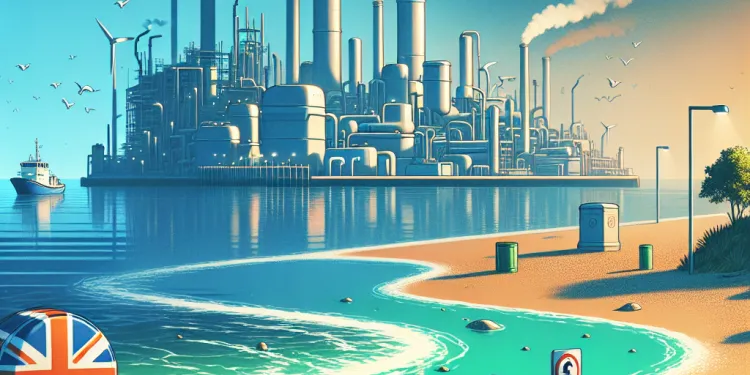
Find Help
More Items From Ergsy search
-
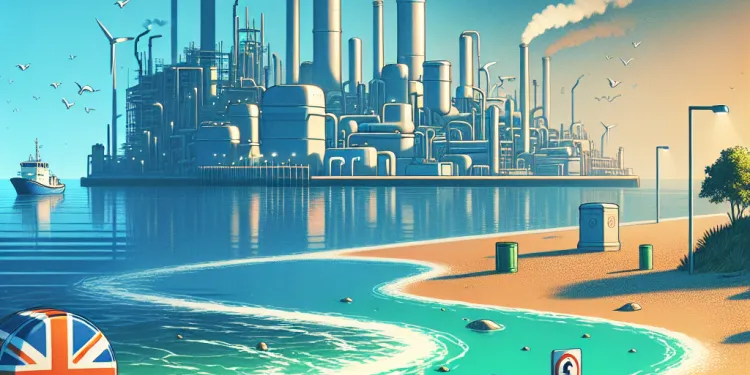
What causes sewage pollution on UK beaches?
Relevance: 100%
-
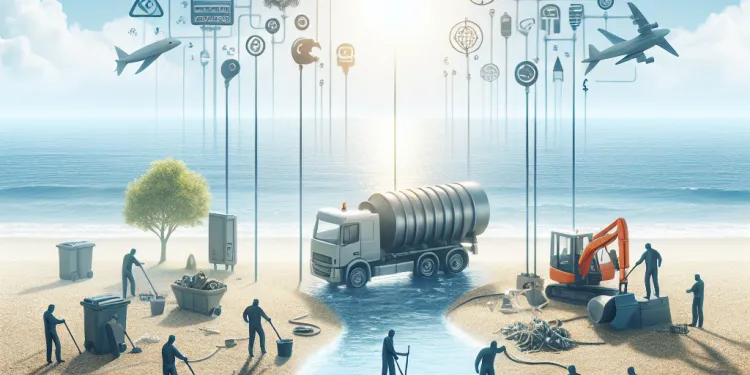
What is being done to address sewage pollution on UK beaches?
Relevance: 97%
-
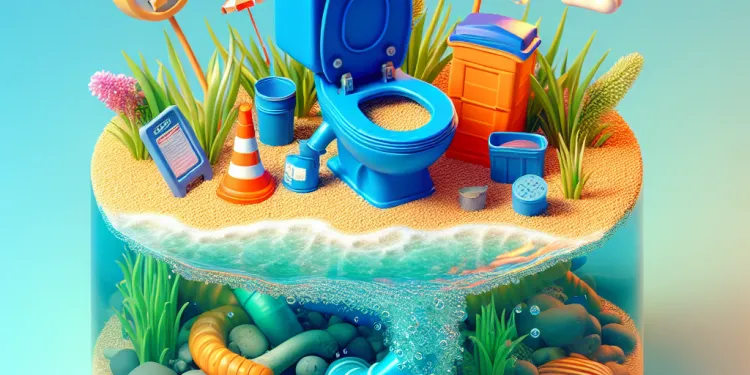
Is sewage a problem on UK beaches?
Relevance: 94%
-
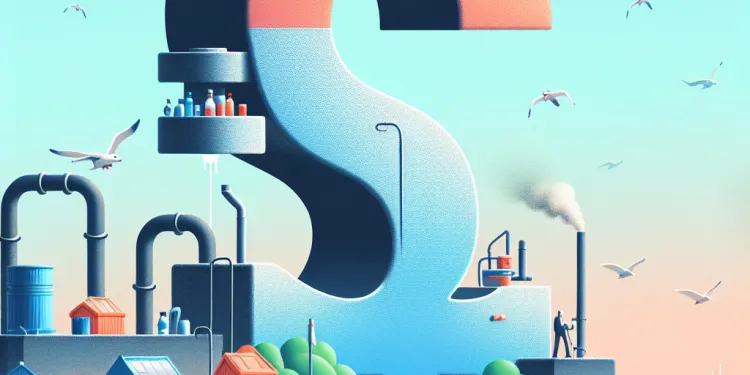
How can the public find out if a beach has sewage pollution?
Relevance: 90%
-
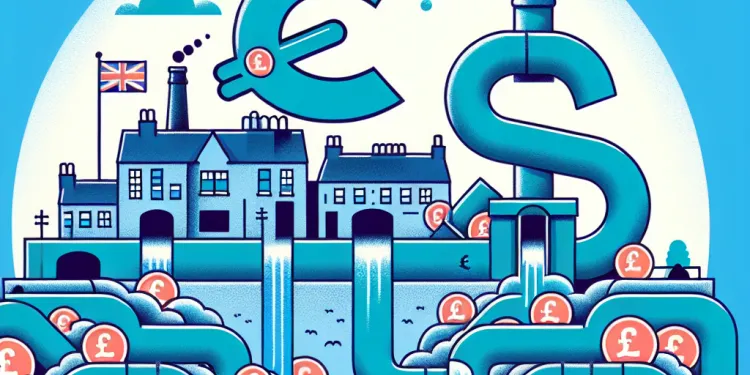
Which UK areas are most affected by sewage pollution?
Relevance: 70%
-
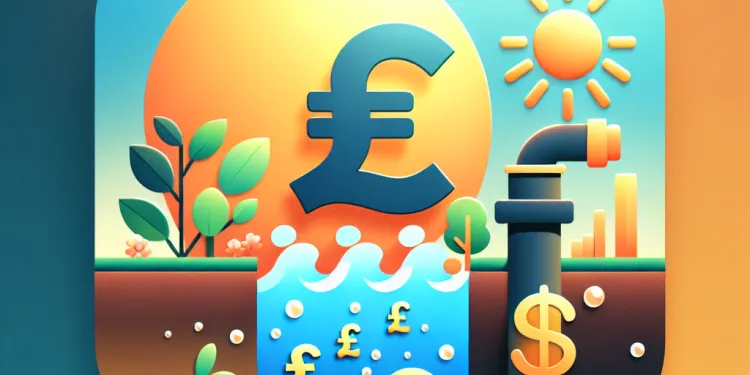
Is climate change affecting sewage pollution levels?
Relevance: 64%
-
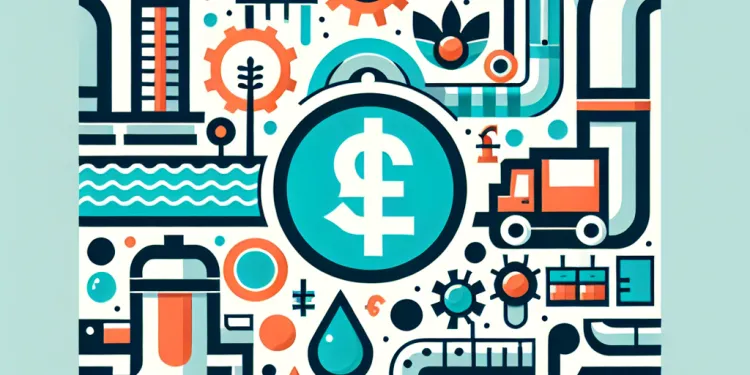
What agencies monitor and regulate sewage pollution in the UK?
Relevance: 62%
-
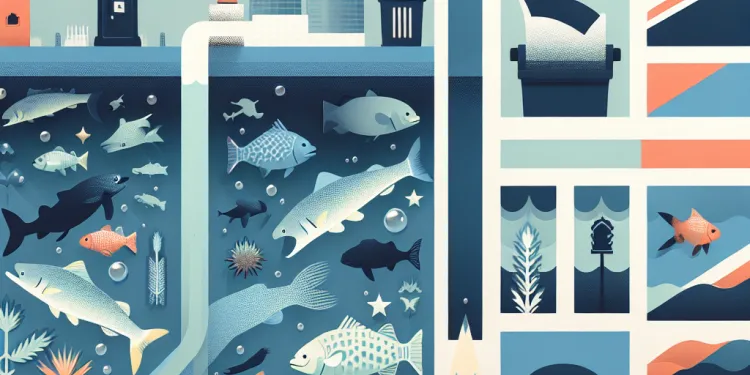
Can sewage pollution impact marine wildlife?
Relevance: 62%
-
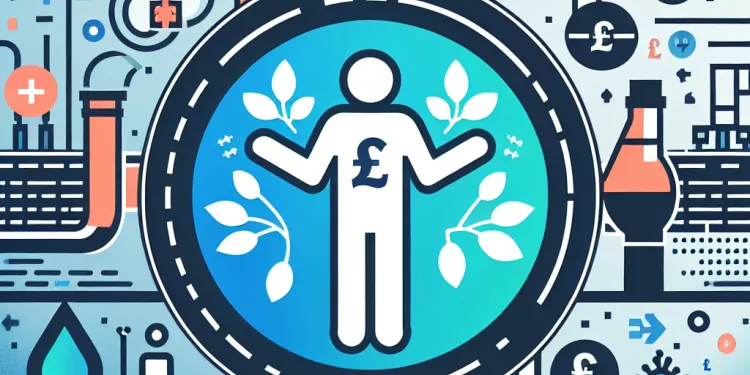
How does sewage pollution affect public health?
Relevance: 60%
-
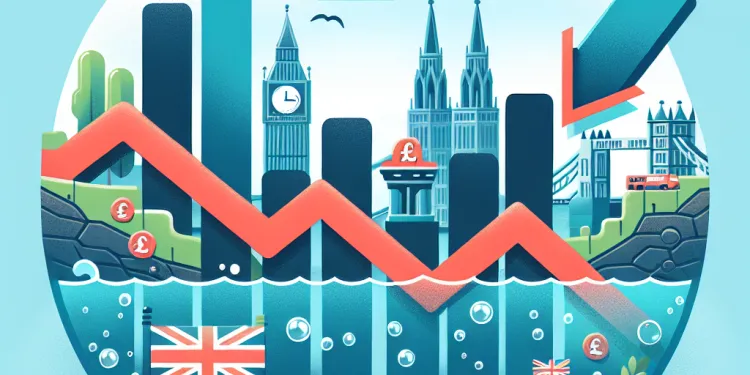
Has sewage pollution in the UK improved over recent years?
Relevance: 60%
-
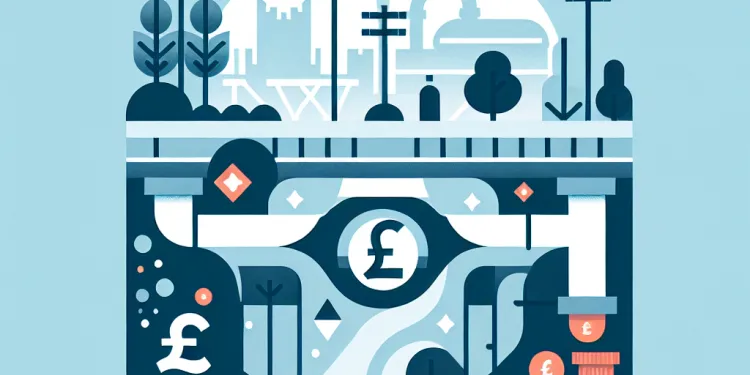
What role do water companies play in sewage pollution?
Relevance: 59%
-
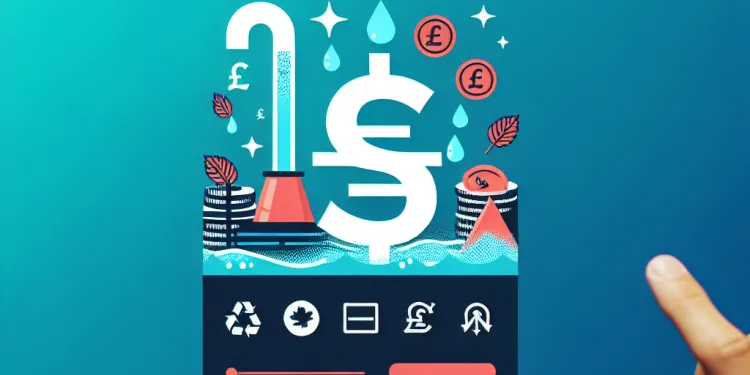
How can individuals help reduce sewage pollution?
Relevance: 59%
-
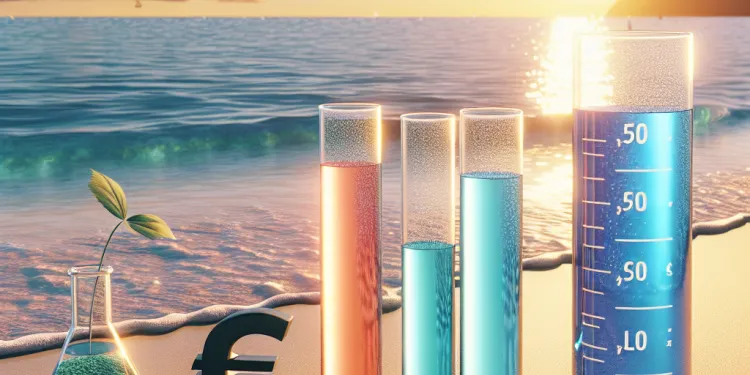
Are some UK beaches rated better for water quality than others?
Relevance: 47%
-
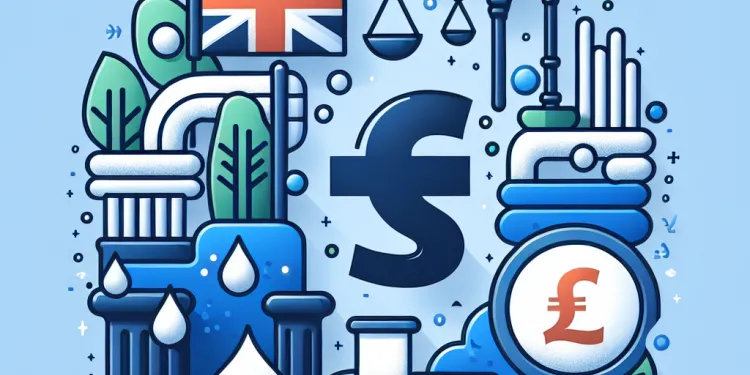
Are there legal guidelines for sewage discharge into UK waters?
Relevance: 42%
-
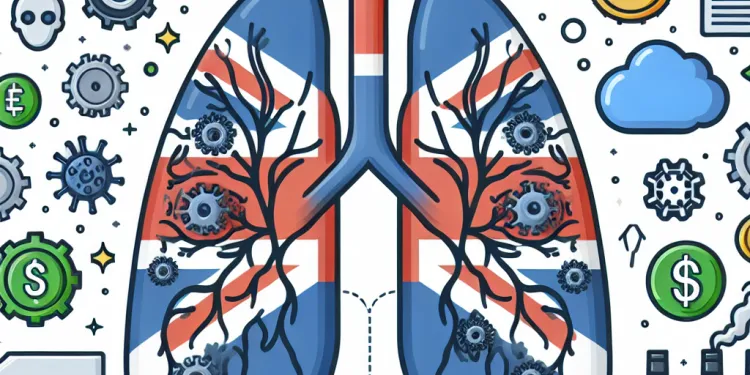
Air Pollution and Lung Cancer
Relevance: 30%
-
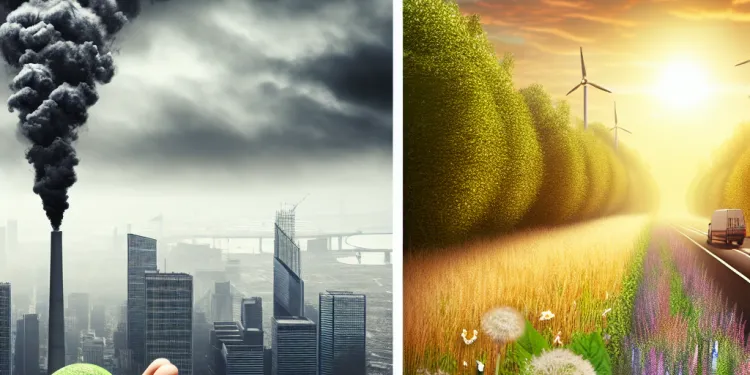
How does air pollution affect asthma?
Relevance: 28%
-
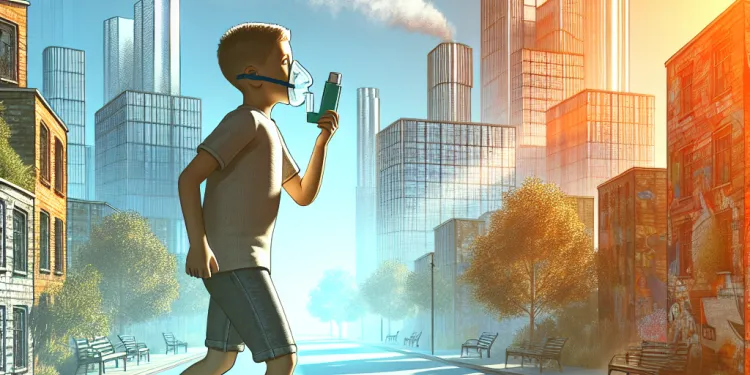
Rise in Childhood Asthma Linked to Air Pollution in Urban Areas
Relevance: 26%
-

High Air Pollution Levels Linked to Rising Cases of Respiratory Issues
Relevance: 26%
-

Where can I find information on air pollution and its effect on Asthma for my local area?
Relevance: 25%
-

Where can I find research studies on air pollution and asthma in my area?
Relevance: 25%
-

What are some common pollutants that affect asthma sufferers in urban areas?
Relevance: 25%
-
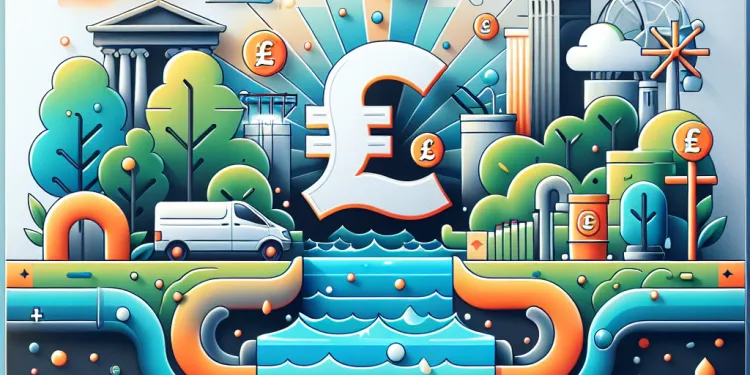
What is a Combined Sewer Overflow (CSO)?
Relevance: 20%
-

What local organizations provide information on air pollution and asthma?
Relevance: 19%
-

How can I reduce my exposure to air pollution if I have asthma?
Relevance: 18%
-

What local organizations provide information on air pollution and asthma?
Relevance: 18%
-

Where can I find general information about air pollution and asthma?
Relevance: 18%
-
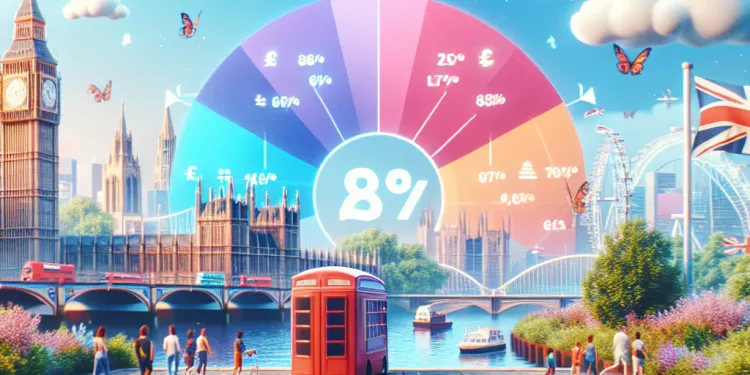
Is UK air quality changing?
Relevance: 15%
-

Are there mobile apps to track air quality and its impact on asthma?
Relevance: 13%
-
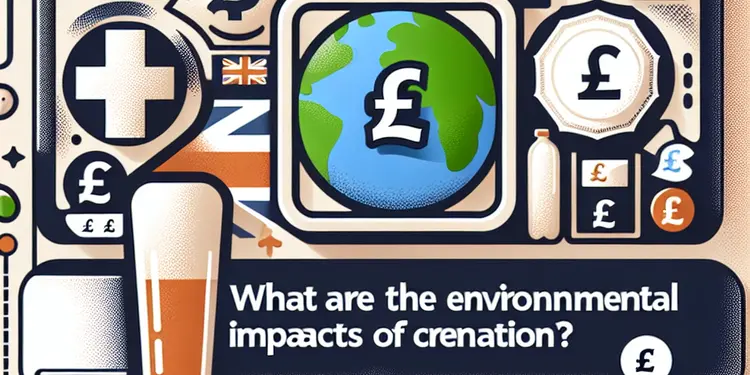
What are the environmental impacts of cremation?
Relevance: 13%
-

Is hay fever more common in urban areas?
Relevance: 12%
-

UK Study Links Poor Air Quality to Increased Asthma Cases in Urban Areas
Relevance: 12%
-

How do I check current air quality levels in my local area?
Relevance: 11%
-
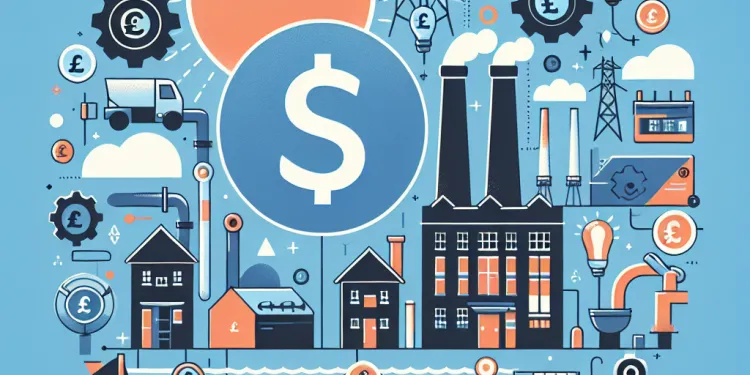
Are water companies responsible for maintaining water infrastructure in the UK?
Relevance: 11%
-

Why are experts warning of rising hay fever cases?
Relevance: 11%
-
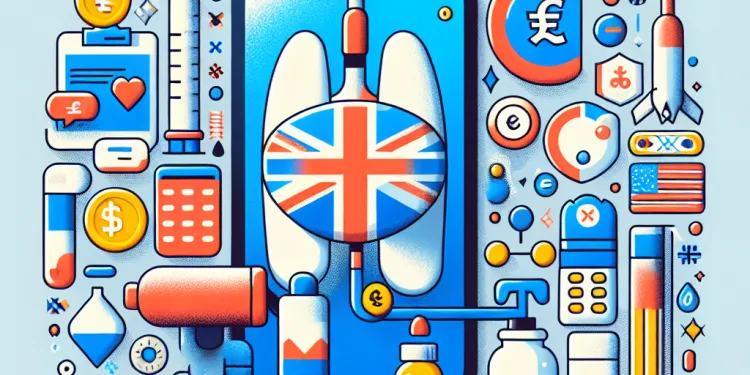
What causes asthma?
Relevance: 11%
-

Why is infrastructure maintenance important?
Relevance: 10%
-
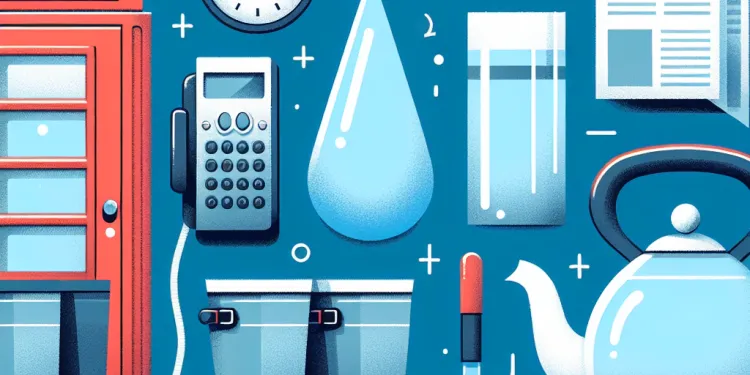
Which UK water companies are going to refund their customers?
Relevance: 10%
-

What triggers asthma attacks?
Relevance: 10%
-
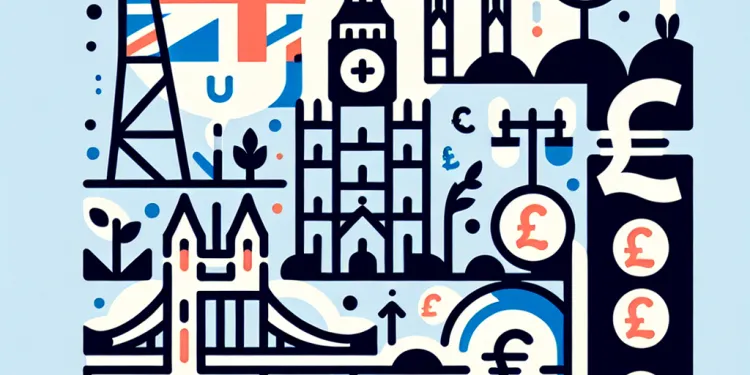
How many UK water companies are involved in the refund process?
Relevance: 9%
-
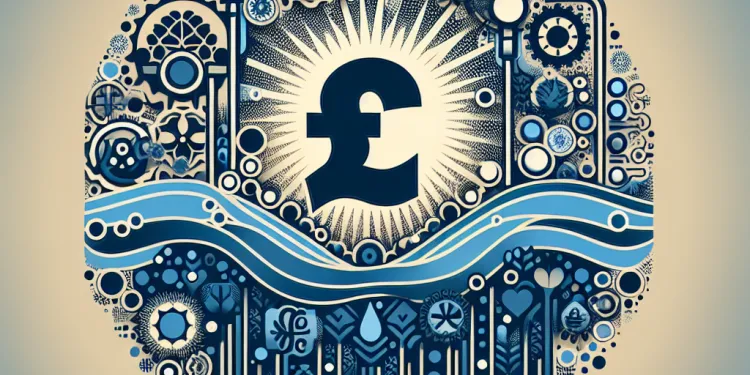
Will all customers of these UK water companies receive refunds?
Relevance: 9%
Understanding Sewage Pollution on UK Beaches
Introduction
Sewage pollution has become a pressing issue affecting UK beaches, with significant implications for public health, marine life, and the wider environment. Understanding the causes of this pollution is crucial for devising strategies to mitigate its impact.Combined Sewer Overflows (CSOs)
A primary contributor to sewage pollution on UK beaches is the use of combined sewer overflows (CSOs). The UK’s aging sewer systems are often designed to handle both stormwater and household waste. During periods of heavy rainfall, these systems can become overwhelmed, leading to the discharge of untreated sewage directly into rivers and coastlines as a fail-safe to prevent urban flooding.Aging Infrastructure
The UK’s sewage infrastructure, much of it constructed in the Victorian era, is struggling to cope with modern demands. Increased population density and urbanization have placed additional stress on these systems, contributing to their frequent malfunction and breakdown, resulting in pollution events.Industrial and Agricultural Runoff
Industrial discharges and agricultural runoff also play a role in sewage pollution. Waste from factories and farms can enter the sewer system, especially when faulty or illegal connections are present. Nutrient-rich runoff, such as fertilizers, can cause algae blooms that deplete oxygen in marine environments, affecting water quality and marine organisms.Policy and Regulation Challenges
Inadequate regulatory enforcement and funding shortages have exacerbated the problem. Although there are policies in place to manage wastewater treatment and beach water quality, inconsistencies in implementation, along with budget constraints, hinder significant infrastructure improvements and the enforcement of environmental standards.Public Awareness and Action
Public awareness regarding the sources and impact of sewage pollution is crucial. Increased engagement with coastal communities and public education campaigns can foster a collective effort to address pollution. Citizens can advocate for policy changes and funding for sewage system upgrades, and participate in local clean-up efforts to mitigate the effects of pollution.Conclusion
Addressing sewage pollution on UK beaches requires a multifaceted approach, combining infrastructure investment, regulatory reform, and community involvement. By understanding the causes and implementing comprehensive solutions, the UK can protect its beaches, ensuring cleaner and safer environments for current and future generations.Understanding Sewage Pollution on UK Beaches
Introduction
Sewage pollution is a big problem for UK beaches. It can hurt people, sea animals, and the environment. We need to know why this happens so we can find ways to fix it.Combined Sewer Overflows (CSOs)
One big cause of beach pollution is called combined sewer overflows (CSOs). In the UK, many sewer pipes carry both rainwater and dirty water from homes. When there's too much rain, the pipes can't hold it all, so dirty water goes into rivers and the sea. This stops cities from flooding, but it is not good for the water.Aging Infrastructure
Many of the UK's sewer pipes are old and were built a long time ago. They are not made for how we live today. More people and buildings make it hard for these old pipes, so they often break and cause pollution.Industrial and Agricultural Runoff
Factories and farms can also cause pollution. Sometimes, waste from these places gets into the sewer system by mistake. Fertilizers from farms can make too much algae in the water, which takes away oxygen that sea life needs.Policy and Regulation Challenges
There are problems with the rules meant to keep water clean. Sometimes, the rules are not used well, and not enough money is spent to fix things. This means important work on sewers does not get done.Public Awareness and Action
It's important for people to know about sewage pollution and what causes it. If more people learn and talk about it, we can work together to make things better. People can ask for better rules and more money to fix sewers. They can also help clean up beaches.Conclusion
To fix the sewage problem on UK beaches, we need to do many things. We need to fix old pipes, have better rules, and work together as a community. By doing this, we can keep beaches clean and safe for everyone now and in the future.Frequently Asked Questions
What are the main causes of sewage pollution on UK beaches?
The main causes include overflow from sewage treatment plants, combined sewer overflows (CSOs) during heavy rains, agricultural runoff, and stormwater runoff.
How does heavy rainfall impact sewage pollution on beaches?
Heavy rainfall can overload sewer systems which may result in the release of untreated or partially treated sewage into rivers and coastal waters through CSOs.
What role do combined sewer overflows (CSOs) play in sewage pollution?
CSOs are designed to release excess wastewater during heavy rains to prevent sewer systems from backing up. However, they can contribute to sewage pollution by discharging untreated sewage into water bodies.
How does agricultural runoff contribute to sewage pollution?
Agricultural runoff can contain nutrients, pesticides, and animal waste. When it reaches water bodies, it can contribute to pollution and eutrophication, affecting water quality.
Why is stormwater runoff a concern for UK beaches?
Stormwater runoff can carry various pollutants, including oils, chemicals, and debris, from urban areas into waterways and the ocean, contributing to water pollution.
Are there any regulations in place to manage sewage pollution on UK beaches?
Yes, the UK has regulations under the Water Industry Act and directives from the European Union, such as the Urban Waste Water Treatment Directive, which aim to control sewage discharges.
What is the Environmental Agency's role in addressing sewage pollution?
The Environment Agency monitors water quality, enforces regulations, and works with water companies to minimize pollution incidents.
How do private water companies affect sewage pollution on beaches?
Private water companies are responsible for maintaining sewage infrastructure. Failures or underinvestment in infrastructure can lead to increased pollution incidents.
What are the health risks associated with sewage pollution on beaches?
Exposure to sewage-polluted water can lead to gastrointestinal illnesses, infections, and other health issues for swimmers and beachgoers.
How can the public help in reducing sewage pollution?
The public can help by reducing water usage during heavy rains, properly disposing of waste, and supporting initiatives aimed at improving water quality.
What are blue flag beaches, and how do they relate to sewage pollution?
Blue flag beaches meet high environmental and quality standards, including good water quality. Reducing sewage pollution helps maintain these standards.
How has climate change impacted sewage pollution on UK beaches?
Climate change has led to more frequent and severe weather events, increasing the likelihood of sewage overflows due to capacity limits in existing sewer systems.
What technological solutions exist to reduce sewage pollution?
Improvements in sewage treatment technologies, installation of green infrastructure, and real-time monitoring systems are some solutions to mitigate pollution.
What is the government doing to tackle sewage pollution on UK beaches?
The UK government has introduced initiatives to upgrade infrastructure, monitor pollution levels, and enforce stricter regulations on discharges.
How often is water quality tested at UK beaches?
Water quality at UK beaches is typically monitored regularly during the bathing season (May to September) by authorities to ensure safety for public use.
Why is there dirty water on UK beaches?
Dirty water on beaches can happen because of:
- Pipes that take bathroom water to the sea.
- Too much rain making water dirty.
- Factories putting waste in the sea.
Tools and tips:
- Look at pictures and videos to understand more.
- Ask someone you trust to explain if you're confused.
- Use websites that explain things simply.
The main reasons are:
- Too much water from sewage treatment plants spilling over.
- Extra water from combined sewers during heavy rain.
- Water carrying dirt and chemicals from farms.
- Rainwater running off roads and buildings.
For help, try using pictures or videos to understand these better. Talking it through with someone or using tools like apps that read text out loud can also help.
How does a lot of rain make beach water dirty?
When rain is heavy, it can carry dirty things into the sea. This can make the beach water not safe for swimming.
You can use pictures or videos to understand more about this. Ask someone for help if you need it.
When it rains a lot, too much water can get into the pipes. This can make dirty water spill into rivers and the sea. The dirty water might not be cleaned properly.
Why do combined sewer overflows (CSOs) cause water pollution?
Combined sewer overflows, or CSOs, can make rivers and lakes dirty. When it rains a lot, sewers can overflow. This mixes rainwater with dirty toilet water before it goes to the treatment plant. Too much water can make the sewer overflow into rivers.
To better understand this, you can:
- Use pictures to see how water overflows.
- Watch videos about sewers and water pollution.
- Ask someone to explain this to you in a simple way.
CSOs help when it rains a lot. They stop too much water from flooding the sewers. But sometimes, they let dirty water go into rivers and lakes, which can make them dirty too.
How does farm water pollution mix with sewage water?
When rain falls on farms, it can pick up chemicals and dirt. This water then flows into rivers and lakes. This is called farm water pollution. Some farm water pollution gets into the pipes that carry dirty water from our homes, called sewage water. This can make the sewage water even dirtier.
Tools like pictures and videos can help you understand this better. You can also ask someone to explain it to you.
When farms use water, it can carry stuff like plant food, bug killers, and animal poop. This dirty water can go into rivers and lakes. It makes the water dirty and can harm plants and fish.
Why is storm water a problem for UK beaches?
When it rains, water runs off roads and roofs. This is called storm water. It can carry dirt and rubbish into the sea.
Storm water can make our beaches dirty and unsafe. It can harm animals and plants that live in the sea.
We can help by using bins for litter and keeping drains clear. You can also check the beach water quality before swimming.
For more help, you can use apps or websites that show when the water is safe. These tools can tell you about beach conditions.
When it rains, water can flow over roads and buildings. This water can pick up bad things like oil, chemicals, and trash. These bad things can end up in rivers and the ocean, making the water dirty.
Are there rules to stop dirty water on UK beaches?
Yes, there are rules to keep our beaches clean. These rules help stop dirty water from going into the sea.
If you want help reading, you can try these tools:
- Use a ruler or finger to follow words.
- Ask someone to read with you.
- Use apps that read text out loud.
Yes, the UK has rules about water. These rules come from the Water Industry Act and the European Union. They help to keep water clean by controlling how sewage is treated and released into the environment.
What does the Environmental Agency do about sewage pollution?
The Environmental Agency helps keep our water clean. They work with other people to stop dirty sewage (poo and wee) from getting into rivers and seas. They also check the water to make sure it is safe.
If you want help reading more about this, you can ask someone to read it with you. Watching videos about the Environmental Agency can also help you learn more.
The Environment Agency checks how clean the water is. It makes sure people follow the rules. It works with water companies to stop pollution.
Do private water companies make beach water dirty?
Some companies take care of water. These companies are called private water companies.
Sometimes, the water from toilets and sinks can go into the sea. This makes the beach water dirty. The dirty water is called sewage.
Ask someone if you need help to understand.
Private water companies take care of pipes and sewers. If they do not do a good job or spend enough money fixing things, it can cause more pollution.
What can happen to your health from dirty water on beaches?
Dirty water on beaches can make you sick. Here are some things that might happen:
- You might get a bad tummy, which can make you feel sick or give you diarrhea.
- Your skin might get itchy or have a rash.
- Your eyes might sting and feel sore.
- If you breathe in dirty water, you might cough or feel your throat hurt.
If you go to the beach, try using these helpful tips:
- Check if the beach is safe to swim on that day.
- Avoid swallowing the water while swimming.
- Wash yourself after swimming in the sea.
Swimming in dirty water can make people sick. It can cause tummy problems, infections, and other health issues. Be careful when swimming at the beach.
How can people help stop dirty water pollution?
Here are some easy ways to help:
- Don't pour oil or fat down the sink. It can block pipes. Instead, let it cool and put it in the bin.
- Only flush toilet paper down the toilet. Throw wipes and cotton buds in the bin.
- Use less water. Turn off taps when brushing teeth.
- Tell an adult if you see a lot of rubbish near water. They can call people who clean it up.
- Join a local clean-up group with friends or family.
These steps keep the water cleaner for animals and people.
For help reading, you can:
- Ask a friend or adult to read with you.
- Use apps that read text out loud.
You can help by using less water when it rains a lot. Throw away rubbish in the right place. Help support programs that make the water cleaner.
What are Blue Flag beaches, and how do they relate to dirty water?
A Blue Flag beach is very clean and safe. It means people check the beach and the water to make sure it is nice and healthy.
Dirty water, or sewage, is bad. It can make beaches unsafe. It is important to keep the water clean so that a beach can get a Blue Flag.
You can look for signs or find information online about Blue Flag beaches near you. This can help you pick a nice beach to visit.
Blue flag beaches are very good. They are clean and safe, and the water is nice. We must stop dirty water from getting in the sea to keep this beach nice.
How does climate change affect dirty water on UK beaches?
Climate change is making the weather worse. This can cause more storms and floods. When it rains a lot, the drains and sewers cannot hold all the water. This can make them overflow and spill sewage.
What tools can help stop dirty water pollution?
There are tools and ideas that help make water clean.
These tools can stop dirty stuff from getting into rivers and seas.
Here are some tools that help:
- Water Treatment Plants: Places that clean the water.
- Filters: Things that catch the dirt in the water.
- Green Spaces: Plants and trees help keep water clean.
Using these ideas can make our water safe to use.
If you need help reading this, you can ask a friend or an adult.
There are ways to help stop pollution. We can use better ways to clean dirty water, put in green plants and parks, and use special tools to watch water quality all the time.
What is the government doing to stop dirty water on UK beaches?
The UK government is doing some new things to help the environment. They are working on fixing roads and buildings, checking how much pollution is in the air and water, and making sure companies follow rules so they don't dump bad stuff into the environment.
How often do we check the water at UK beaches?
People check the water at UK beaches often from May to September. They do this to make sure it is safe for everyone to swim.
Useful Links
Have you found an error, or do you have a link or some information you would like to share? Please let us know using the form below.
-->
This website offers general information and is not a substitute for professional advice.
Always seek guidance from qualified professionals.
If you have any medical concerns or need urgent help, contact a healthcare professional or emergency services immediately.
Some of this content was generated with AI assistance. We’ve done our best to keep it accurate, helpful, and human-friendly.
- Ergsy carfully checks the information in the videos we provide here.
- Videos shown by Youtube after a video has completed, have NOT been reviewed by ERGSY.
- To view, click the arrow in centre of video.
- Most of the videos you find here will have subtitles and/or closed captions available.
- You may need to turn these on, and choose your preferred language.
- Go to the video you'd like to watch.
- If closed captions (CC) are available, settings will be visible on the bottom right of the video player.
- To turn on Captions, click settings .
- To turn off Captions, click settings again.
More Items From Ergsy search
-

What causes sewage pollution on UK beaches?
Relevance: 100%
-

What is being done to address sewage pollution on UK beaches?
Relevance: 97%
-

Is sewage a problem on UK beaches?
Relevance: 94%
-

How can the public find out if a beach has sewage pollution?
Relevance: 90%
-

Which UK areas are most affected by sewage pollution?
Relevance: 70%
-

Is climate change affecting sewage pollution levels?
Relevance: 64%
-

What agencies monitor and regulate sewage pollution in the UK?
Relevance: 62%
-

Can sewage pollution impact marine wildlife?
Relevance: 62%
-

How does sewage pollution affect public health?
Relevance: 60%
-

Has sewage pollution in the UK improved over recent years?
Relevance: 60%
-

What role do water companies play in sewage pollution?
Relevance: 59%
-

How can individuals help reduce sewage pollution?
Relevance: 59%
-

Are some UK beaches rated better for water quality than others?
Relevance: 47%
-

Are there legal guidelines for sewage discharge into UK waters?
Relevance: 42%
-

Air Pollution and Lung Cancer
Relevance: 30%
-

How does air pollution affect asthma?
Relevance: 28%
-

Rise in Childhood Asthma Linked to Air Pollution in Urban Areas
Relevance: 26%
-

High Air Pollution Levels Linked to Rising Cases of Respiratory Issues
Relevance: 26%
-

Where can I find information on air pollution and its effect on Asthma for my local area?
Relevance: 25%
-

Where can I find research studies on air pollution and asthma in my area?
Relevance: 25%
-

What are some common pollutants that affect asthma sufferers in urban areas?
Relevance: 25%
-

What is a Combined Sewer Overflow (CSO)?
Relevance: 20%
-

What local organizations provide information on air pollution and asthma?
Relevance: 19%
-

How can I reduce my exposure to air pollution if I have asthma?
Relevance: 18%
-

What local organizations provide information on air pollution and asthma?
Relevance: 18%
-

Where can I find general information about air pollution and asthma?
Relevance: 18%
-

Is UK air quality changing?
Relevance: 15%
-

Are there mobile apps to track air quality and its impact on asthma?
Relevance: 13%
-

What are the environmental impacts of cremation?
Relevance: 13%
-

Is hay fever more common in urban areas?
Relevance: 12%
-

UK Study Links Poor Air Quality to Increased Asthma Cases in Urban Areas
Relevance: 12%
-

How do I check current air quality levels in my local area?
Relevance: 11%
-

Are water companies responsible for maintaining water infrastructure in the UK?
Relevance: 11%
-

Why are experts warning of rising hay fever cases?
Relevance: 11%
-

What causes asthma?
Relevance: 11%
-

Why is infrastructure maintenance important?
Relevance: 10%
-

Which UK water companies are going to refund their customers?
Relevance: 10%
-

What triggers asthma attacks?
Relevance: 10%
-

How many UK water companies are involved in the refund process?
Relevance: 9%
-

Will all customers of these UK water companies receive refunds?
Relevance: 9%


